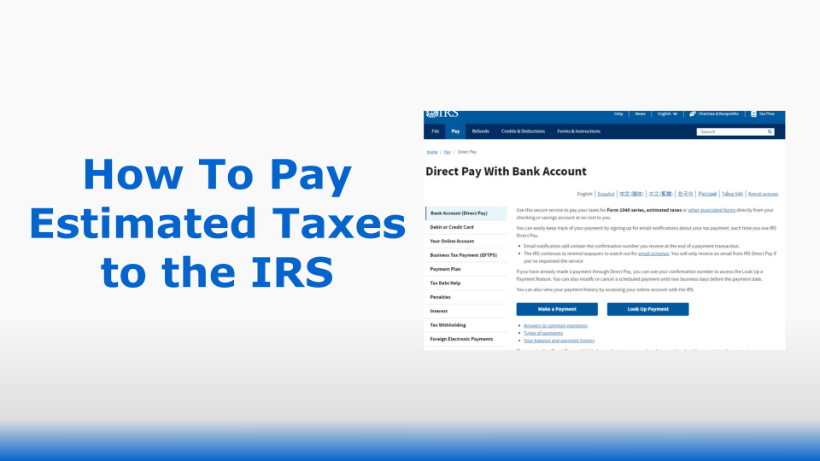Get a Personal Tax Extension
Published:Request Six More Months to File Your Taxes
This year, most individual income tax returns need to be e-filed or postmarked by April 18. If you do not file on time, there is a late filing penalty of 5% on the amount that you owe. This is added to your tax balance for each month (or part of a month) that you do not file. In addition to the late filing penalty, there are also interest and fees for not paying your taxes by April 18.
However, if you are not going to be able to file your tax return on time, there is some relief.
You can apply for an automatic 6-month extension for filing your tax return. You do not need to give the IRS a reason for requesting more time. A tax extension will give you until October 15 to file your tax return.
>> Request an IRS Tax Extension
What Form Do You Need to Request an Extension?
In order to get an automatic extension, you must file Form 4868 (Application for Automatic Extension of Time to File U.S Individual Income Tax Return) with the IRS.
You can file Form 4868 electronically (a.k.a. “e-file”) or by paper mail. If you file by paper, the IRS will only notify you if your extension is rejected. On the other hand, if you e-file Form 4868 electronically, you will receive a confirmation email as soon as the IRS approves your extension.
You will need to provide your Social Security Number (SSN) on Form 4868, as well as your spouse’s SSN if married filing jointly. The IRS will use this information to identify you. You will also be asked to provide an estimate of your total tax liability for the year and the amount of taxes you have already paid. This helps determine if you will owe any tax by April 18.
What Is the Deadline to File an Extension?
In order to obtain a 6-month extension, you must file your application on or before the original due date of your tax return (April 15 for most individuals). If you are filing an extension by paper mail, it must be postmarked by April 18. If you are e-filing Form 4868, then it needs to be submitted to the IRS by midnight (in your local time zone) on April 15.
A personal tax extension gives you until October 15 to file your income tax return. You may file your return any time during the extension period, even before April 18 if you’re ready by then. A tax extension gives you peace of mind, which is why many people get extensions every year to be safe.
Note that the IRS very rarely grants extensions beyond 6 months.
Does an Extension Give You More Time to Pay?
No, an extension of time to file your taxes is not an extension to pay your taxes. If you fail to pay your tax liability on time, the IRS will charge late payment penalties and interest. In order to avoid the late payment penalty, you must pay at least 90% of your tax liability by April 18. (However, interest will still be charged on any outstanding balance.) Fortunately, a tax extension will satisfy your April filing obligation, which means the IRS will not charge you a late filing penalty.
If you owe tax, you can make a tax payment with your extension. If you e-file an extension, you can make this payment electronically directly to the IRS. If you file Form 4868 by paper mail, you can include a check with your form. While it is recommended that you pay any tax due with your extension, it is not required.
When you do file your tax return, remember to report the tax payment that you made with your extension request under the “Payments” section of your return (Line 70 of Form 1040).
Tax Extensions for Special Circumstances
If you are out of the country on April 18, you will be automatically granted a 2-month extension (to June 15) without having to file Form 4868. However, if you want an additional 4-month extension, you must file Form 4868 by June 15 (for calendar year taxpayers).
There are also special considerations for members of the U.S. Armed Forces who are stationed overseas in an active duty combat zone. For more information, please see IRS Publication 3 (Armed Forces Tax Guide).
>> E-file an IRS Tax Extension



